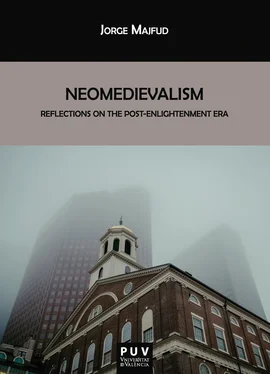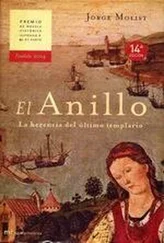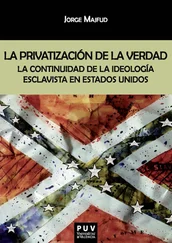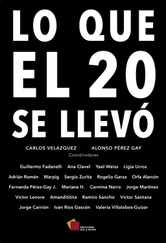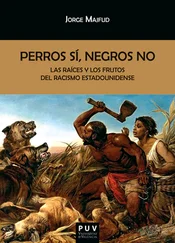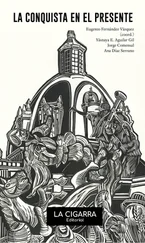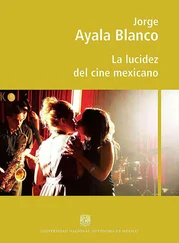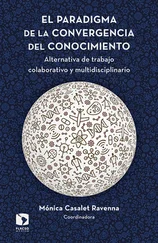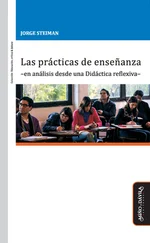What was the point of any of it? I ask myself this while I stare at a pile of a hundred letters written in Arabic that his parents wrote and received almost a century ago. I don’t know what they say. I can only suspect that they are stories of love and heartbreak, of encounters and disagreements that my father never knew about because his family also hid from him their own frustrations, just as they hid from him all the secrets of a language that they only used in the depths of their two privates lives in a small earthen house, in the middle of a field that belonged to someone else and barely provided for survival.
What was the point of it all? I ask myself again. Then I look at my son looking out the window as I liked to do while my father worked at more useful things and I realize that I know the answer. The answer, not the truth. Because duty, what should be, is one thing, and what simply is is something else. There is no doubt about one and about the other, about the truth, probably no one even knows its name.
Radical Culture and Popular Culture
WHAT GOOD IS CULTURE?
In 2006, in Lewisburg, Tennessee, a neighborhood group protested because the public library was investing resources in the purchase of books in Spanish. Of the sixty thousand volumes, only one thousand were published in a language other than English. The annual budget, totaling thirteen thousand dollars, dedicated the sum of one hundred and thirty dollars to the purchase of books in Spanish. The buying spree, representing one percent of the budget, enraged some of the citizens of Tennessee, causing them to take the issue to the authorities, arguing that a public service, sustained through taxes charged to the U.S. populace, should not promote something that might benefit illegal workers.
Thus, the new conception of culture surpasses that distant precept of the ancient library of Alexandria. That now almost completely forgotten library achieved the height of its development in second century Egypt. Its backward administrators had the custom of periodically sending investigators throughout the world in order to acquire copies of texts from the most distant cultures. Among its volumes there were copies of Greek, Persian, Indian, Hebrew and African texts. Almost all of those decade-long efforts were abruptly brought to an end, thanks to a fire caused by the enlightened ships of the emperor Julius Caesar. Nearly a thousand years later, another deliberately-set fire destroyed the similarly celebrated library of Córdoba, Spain, founded by the caliph Al-Hakam (creator of the University and of free education for poor kids), where the passion for knowledge brought together Jews, Christians, and Muslims with texts from the most diverse cultures known in the period. Also in this period, the Spanish caliphs were in the habit of dispatching seekers throughout the world in order to expand the library’s collection of foreign books. This library was also destroyed by a fanatic, al-Mansur, in the name of Islam, according to his own interpretation of the common good and superior morality.
In the past, military rulers of Latin American dictatorships (I grew up in one of them), to exacerbate honor and patriotism, tried to clean up the Spanish language, college education and culture itself from any foreign influence, starting with ideas (people in power frequently fear other’s ideas, which is understandable; words are perceived as more dangerous than money and arms and, in fact, sometimes they are). For some reason they, as the Nazis and many other self-proclaimed democratic people did and do today, never realized that there is no idea, no tradition, no language, no religion, no race uncontaminated by foreigners. By definition, every human creation is historical, that is, is the result of a long evolution and, very frequently, of short and devastating involutions.
The Tennessee anecdote perhaps represents a minority in a vast and heterogeneous country (both “real Americans” and anti-Americans hate the most beautiful characteristic of this country: diversity). But it remains significant and representative of still millions of people, frequently exacerbated by some big media shows, a practice that was invented in Germany eighty years ago.
Significant and common is the idea, assumed in that anecdote, that the Spanish language is a foreign language, when any half-way educated person knows that almost one hundred years before English, it was Spanish that was spoken in what today is the United States; that Spanish has been there, in many states of the Union for five centuries; that Spanish and Latino culture are neither foreign nor an insignificant minority: more than fifty million Hispanics live in the United States and the number of Spanish-speakers in the country is roughly equivalent to the number of Spanish speakers living in Spain. For many, the “real American” (another stereotype, as most of the “real” men and women are), often depicted as a kind of cowboy, actually derives from the Mexican vaquero (originally from the Arabic tradition, like most of the traditional West and Southwest architectural style) who left a strong mark on both legal and illegal immigrants from the eastern US. The dollar symbol, $, is derived from the Spanish Peso (PS), the common currency until late 18th century—not to mention the Spanish Empire Flag, which is in the flag of some southern U.S. states. And so on, and so forth.
If those who become nervous because of the presence of that “new culture” had the slightest historical awareness, they would neither be nervous nor consider their neighbors to be dangerous foreigners. The only thing that historically has always been dangerous is ignorance, which is why the promotion of ignorance can hardly be considered synonymous with security and progress—even by association, as with the reigning method of propaganda, which consists of associating cars with women, tomatoes with civil rights, the victory of force and wealth with proof of the truth, or a million dollars with paradise.
According to French-American Thomas Jefferson, Spanish is a crucial language to an American. He read Don Quixote in its original language and recommended the study of both Spanish and French. However, as the revolutionary British Thomas Paine once said: “nothing can reach the heart that is steeled with prejudice.”
I am not so naïve as to think that today we could have intellectual politicians like the Founding Fathers, but at least it could be convenient to consider that myths, traditions, and popular history are written based on a convenient combination of memory and forgetfulness. Sometimes it helps to mitigate the pride of ignorance—and the fire as well.
WHAT GOOD IS LITERATURE, ANYWAY?
I am sure that you have heard many times this loaded query: “Well, what good is literature, anyway?” almost always from a pragmatic businessman or, at worst, from a Goering of the day, one of those pseudo-demigods that are always hunched down in a corner of history, waiting for the worst moments of weakness in order to “save” the country and humankind by burning books and teaching men how to be “real” men. And, if one is a freethinking writer during such times, one gets a beating, because nothing is worse for a domineering man with an inferiority complex than being close to somebody who writes. Because if it is true that our financial times have turned most literature into a hateful contest with the leisure industry, the collective unconscious still retains the idea that a writer is an apprentice sorcerer going around touching sore spots, saying inconvenient truths, being a naughty child at naptime. And if his/her work has some value, in fact he/she is all that. Perhaps the deeper mission of literature during the last five centuries has been precisely those things. Not to mention the ancient Greeks, now unreachable for a contemporary human spirit that, like a running dog, has finally gotten exhausted and simply hangs by its neck behind its owner’s moving car.
Читать дальше
